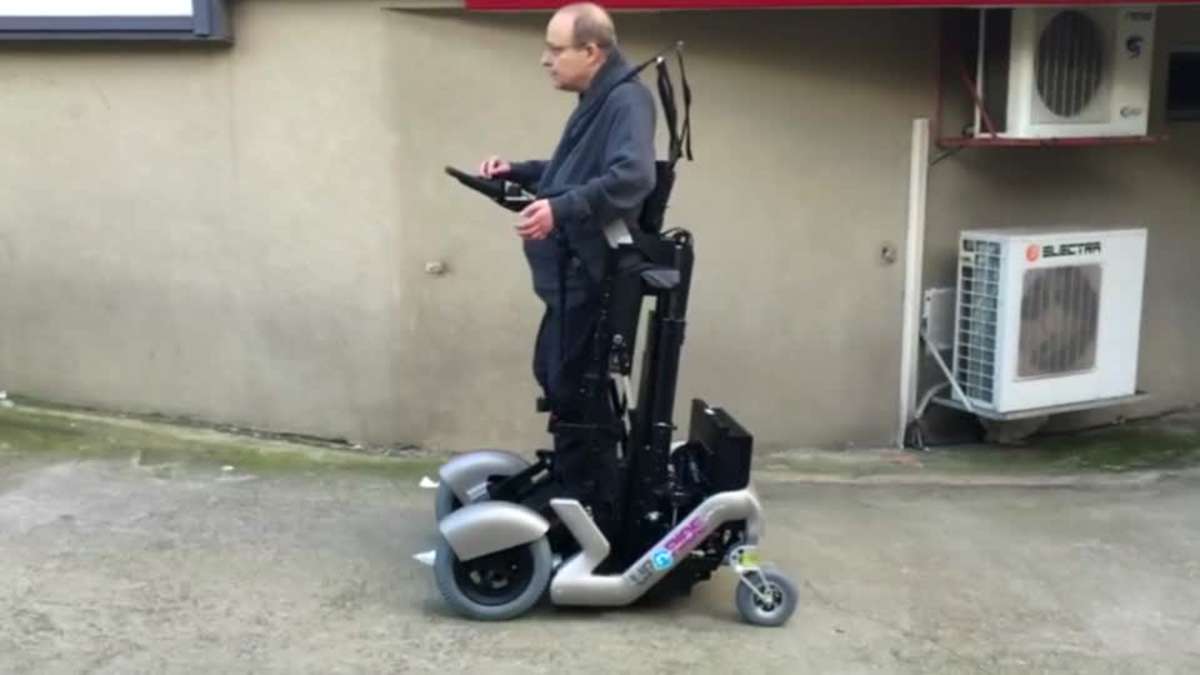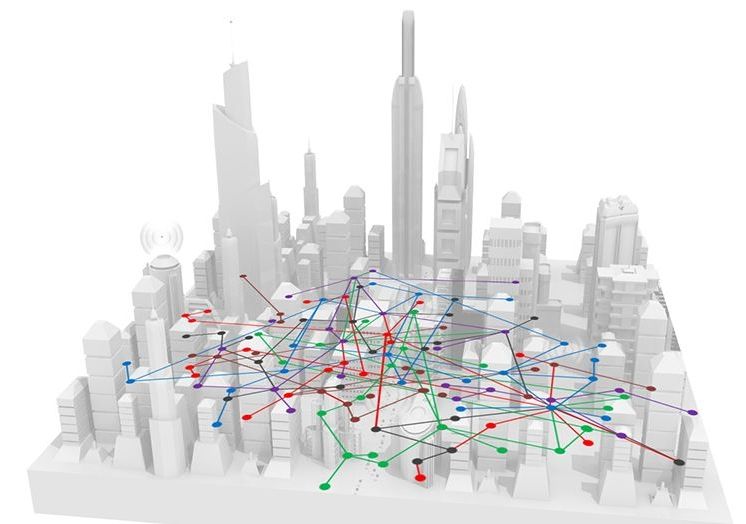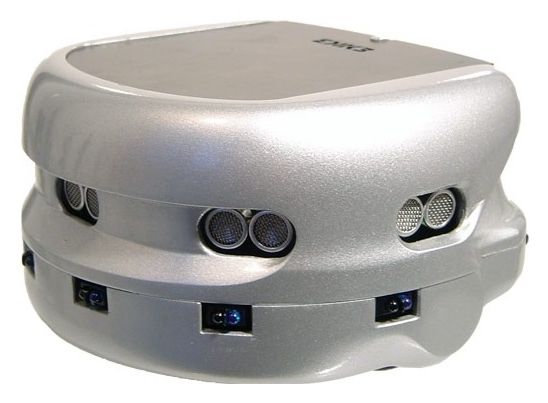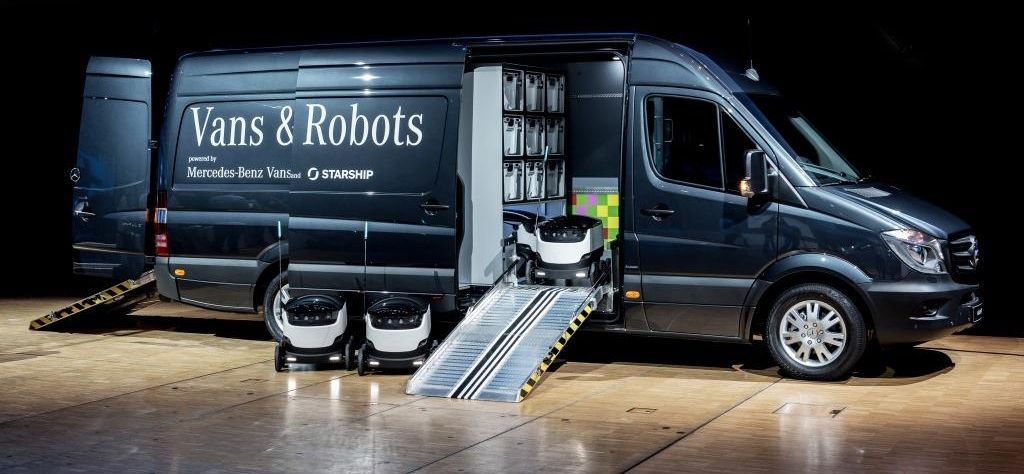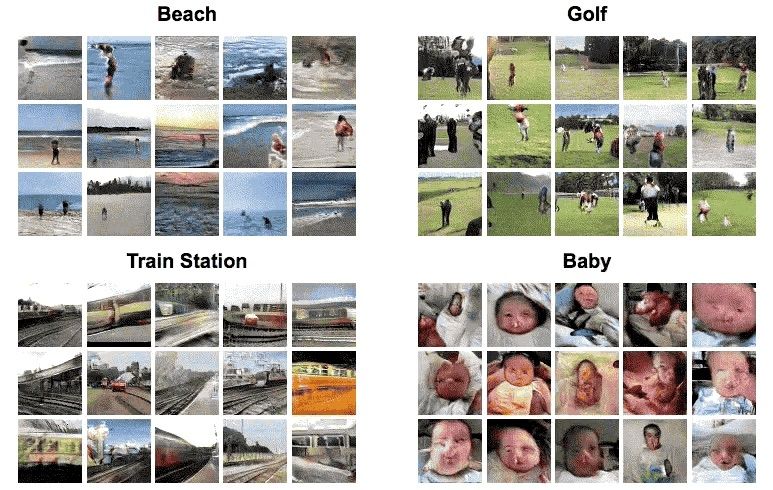Archive for the ‘robotics/AI’ category: Page 2252
Sep 12, 2016
Stand-up wheelchair gives users outdoor mobility
Posted by Karen Hurst in categories: biotech/medical, cyborgs, robotics/AI, transportation
Self-stabilising wheelchair from Israeli technology start-up lets you cruise through town while standing. Matthew Stock reports.
Nearly 20 years ago Amit Goffer suffered an accident that confined him to a wheelchair. Increasingly dissatisfied with what was on offer, the electrical engineer built this — the UPnRIDE. It’s a robotic exoskeleton that helps people paralysed from the waist down to stand tall in the outside world. (SOUNDBITE) (English) CHIEF TECHNICAL OFFICER AND FOUNDER OF UPNRIDE, DOCTOR AMIT GOFFER SAYING: “The UPnRIDE device, the whole idea is that you can use it outdoors as well as indoors and in a safe manner because they, it automatically balances you and stablizes you… The concept is new because you don’t see any disabled person rolling outside in a standing position so this is a breakthrough in the industry of wheelchair manufacturing, I’m sure that others will follow.” It goes from seated to standing at the push of a button. A gyroscope — similar to that in a two-wheeled Segway — along with self-stabilising software helps manoeuvre upright over uneven urban terrain.
Sep 12, 2016
DARPA Launches Contest to Make AI-powered Military Radios that are Really Smart
Posted by Karen Hurst in categories: military, robotics/AI
Got to love this stuff.
Teams that join this DARPA program, the “Spectrum Collaboration Challenge (SC2),” will have to demonstrate new technologies that represent a “paradigm shift” with both military and commercial applications.
“The real crux of the problem is — when you look at users of the spectrum, whether they are commercial users of the spectrum, whether they’re consumers or they’re the military — the thing that is ubiquitously true is we all are placing more and more and more demand on the spectrum. And all of that demand is really adding up and going to stress the way that we actually manage the spectrum,” said Paul Tilghman, program manager.
Continue reading “DARPA Launches Contest to Make AI-powered Military Radios that are Really Smart” »
Sep 12, 2016
Turing’s new phone: Too good to be true in reality
Posted by Shailesh Prasad in categories: energy, internet, mobile phones, robotics/AI
Turing Robot Industries (TRI) has huge plans regarding its new phone. The third in the series phone, has such high-tech plans lined up for it that these plans itself make you cringe on the grounds of practicality and reality. The plans of the company for this phone include an 18 GB RAM, three Snapdragon 830’s, 6.4-inch 4K display, 1.2 TB storage 60MP iMAX 6K Quad Rear Camera Triplet Lens at f/1.2, and a 20MP front camera.
It will have 4G VoLTE enabled 4 Nano SIMs, support Parallel Tracking and Mapping API. This entire package will be powered by a 120wh battery which will also use a triple power source. This would be in the form of a supercooled 3,600mAh graphene battery and a pair of 2,600mAh Li-Ion Hydrogen Fuel cells powering your device (and maybe also your home).
Sep 11, 2016
These Tiny Robots Adapt To Avoid Collisions, Outclassing Most Of Humanity
Posted by Karen Hurst in category: robotics/AI
It may seem like dancing, but these charming automatons actually show off a sophisticated ability to navigate in closer quarters than has previously been achieved (even by bigger bots).
Sep 11, 2016
Cybathlon: World’s first ‘bionic Olympics’ gears up
Posted by Karen Hurst in categories: cyborgs, robotics/AI, transhumanism
Awesome.
Competitors prepare for a contest involving electronic arms and robotic exoskeletons.
Sep 11, 2016
Estonian delivery startup Starship and Mercedes-Benz team up to develop ‘Robovans’
Posted by Roman Mednitzer in categories: robotics/AI, space travel
#Estonian delivery startup Starship Technologies and Mercedes-Benz team up to develop ‘Robovans’: http://bit.ly/2c4AMAD
Sep 10, 2016
AVIA Provides Systematic Test and Evaluation for Autonomy Systems
Posted by Karen Hurst in categories: information science, robotics/AI
For vessels operating at sea, avoiding collisions is a basic operational requirement. When those vessels are operated by humans, collision avoidance is part of basic operator training. And when those vessels become highly autonomous, collision avoidance must be incorporated into complex autonomy algorithms that must be thoroughly tested before the vessels enter the water.
Sep 10, 2016
Machine-Learning Algorithm Generates Videos From Stills
Posted by Shailesh Prasad in categories: information science, robotics/AI
MIT has used machine learning to create video from still images, and the results are pretty impressive. As you can see from the above image, there’s a lot of natural form to the movement in the videos.
The system “learns” types of videos (beach, baby, golf swing…) and, starting from still images, replicates the movements that are most commonly seen in those videos. So the beach video looks like it has crashing waves, for instance.
But like other machine-generated images, these have limitations. The first is size: what you see above is the extent to which the program can render its video. Length is also an issue: only about a second of video gets produced.
Continue reading “Machine-Learning Algorithm Generates Videos From Stills” »
Sep 10, 2016
Why Artificial Intelligence Needs Some Sort of Moral Code
Posted by Elmar Arunov in categories: computing, ethics, robotics/AI, space
Whether you believe the buzz about artificial intelligence is merely hype or that the technology represents the future, something undeniable is happening. Researchers are more easily solving decades-long problems like teaching computers to recognize images and understanding speech at a rapid space, and companies like Google goog and Facebook fb are pouring millions of dollars into their own related projects.
What could possibly go wrong?
For one thing, advances in artificial intelligence could eventually lead to unforeseen consequences. University of California at Berkeley professor Stuart Russell is concerned that powerful computers powered by artificial intelligence, or AI, could unintentionally create problems that humans cannot predict.
Continue reading “Why Artificial Intelligence Needs Some Sort of Moral Code” »

